Description
MULTI-SPORT!
IN STOCK-$29.99 HOW DOES IT WORK?
- Specifically formulated to support the demands of athletic women.
- Supports peak athletic performance.
- Supports metabolism and increases energy all day.
- Fills dietary nutrient gaps to support optimum health.
- Formulated with Albion Certified Chelated Minerals.
- Gentle on the stomach.
- 33 Vitamins, minerals and micronutrients.
- Powerful antioxidant formulation.
- Multi-Sport has been certified as Albion Gold Medallion supplement.

NUTRABIO MULTI-SPORT FOR WOMEN: COMPREHENSIVE. CLINICALLY DOSED MULTIVITAMIN – MINERAL MATRIX FORMULATED SPECIFICALLY FOR FEMALES ATHLETES
MultiSport for Women is an advanced, therapeutically dosed vitamin, mineral and antioxidant formula designed specifically to meet the increased micronutrient demands of female athletes. In a perfect world, athletes would consume a well-balanced diet containing whole grains, fruits, and vegetables, thereby aiding in the assurance of the proper intake of all micronutrients. Unfortunately, in the real world, athletes do not have perfect diets. In today’s society, the lack of time and the convenience of less than ideal food sources tempt people to ingest a diet lacking many of the essential vitamins and minerals needed to maintain a healthy lifestyle and fuel performance. If an athlete’s diet is less than favorable, it is recommended that they take a high-quality multi-vitamin as an easy and cost-effective way to ensure the proper intake of all the essential micronutrients. This is why NutraBio, the most trusted name in sports nutrition, developed MultiSport for Women.
MultiSport for Women goes far beyond the minimum Recommended Daily Intake (RDI), to support optimal nutritional balance and peak physical and mental performance for hardcore athletes and fitness enthusiasts alike. Vitamins and minerals play critical roles in hundreds of bodily functions. MultiSport for Women acts as a foundation for those nutritional needs and ensures that all of the vital micro-nutrients and co-factors are available at the crucial times your body needs to perform optimally.
Although the ingredient profile for MultiSport for men and women mirror each other the key difference is found in the gender specific dosages of ingredients based on each sex’s physiological characteristics and unique micronutrient requirements. For example, the dosage on iron found in MultiSport for Women is higher as research shows female athletes are more prone to iron deficiencies and anemia than their male counterparts due to blood loss during monthly periods. Furthermore, the dosage of calcium is increased in MultiSport for Women as women are more likely to develop osteoporosis (thinning of the bones) than men. Lastly more phosphorus was included to to help balance and use the other vitamins and minerals, including calcium, vitamin D, iodine, magnesium, and zinc.
Unlike most multi-vitamins that are built on fairy dusted combinations of random micronutrients hidden in proprietary blends, MultiSport for Women combines clinically dosed, best-in-class ingredients precisely formulated to deliver exactly what you need to support health, performance, and overall well-being. With NutraBio transparency and innovation is the name of the game and we do it better than anyone. This transparency and innovation is reflected in the most superior female athlete specific multi-vitamin on the market today, MultiSport for Women. It has everything you need in one comprehensive, open-label, clinically dosed formula and nothing you don’t.
MULTISPORT FOR WOMEN FEATURES
- 33 vitamins, minerals and micronutrients specifically formulated to support the demands of athletic women.
- Full spectrum Vitamin B profile
- Supports peak athletic performance
- Supports metabolism and increases energy all day
- Fills dietary nutrient gaps to support optimum health
- Formulated with Albion Certified Chelated Minerals
- Gentle on the stomach
- Powerful antioxidant formulation
- Multi-Sport has been certified as Albion Gold Medallion supplement
WHO CAN BENEFIT FROM TAKING MULTISPORT?
- Anyone who wants more out of their current multi-vitamin
- Anyone who trains hard week in week out
- Anyone who is on a calorie restricted diet
- Anyone who wants to increase the body’s ability to recover
- Anyone who wants to build more lean muscle or lose body fat
- Anyone who wants to bolster their immune system
- Anyone who wants to support overall health
THE RELATIONSHIP BETWEEN MACRO AND MICRONUTRIENTS AND EFFECTS ON ATHLETES
The human diet consists of both macro and micro nutrients. Macronutrients include carbohydrates, fats, and proteins, whereas micronutrients consist of vitamins and minerals. As their name implies, the macronutrients comprise most of the required dietary intake whereas the micronutrients are essential in much lower quantities. With the deficiency of micronutrients, athletic performance in addition to normal physiologic function will suffer. However, the very nature of being a micronutrient suggests that excess intake in well-fed athletes will not likely alter performance without an activity associated increased need. For example, many vitamins and mineral are important in the catabolism of the macronutrients for energy production. Furthermore, many of the micronutrients are involved in endogenous antioxidant defense mechanisms. It has been hypothesized that athletes have an increased requirement for vitamins and minerals because of the increased energy expenditure and excess muscle damage that occurs during training or competition. NutraBio MultiSport can help athletes meet this increased need demand.
MULTISPORT FOR WOMEN IS NOT YOUR TYPICAL ONE-A-DAY MULTI-VITAMIN
MultiSport is not an under dosed, low quality multi-vitamin typically found at your local drug store that is meant for the inactive couch potato. Instead, MultiSport is packed full of scientifically validated, clinically dosed ingredients designed to meet the increased micronutrient demands of hard working athletes who want to maximize their training efforts and support overall health. No expense was spared in including the most bioavailable sources of ingredients in MultiSport. For example, the Vitamin E and K found in MultiSport comes from d-alpha-tocopheryl succinate and Mena-Q® MK7. These natural forms of Vitamin E and K are better absorbed and utilized by the body than the synthetic forms commonly found in traditional multi-vitamins. Furthermore, several of the micronutrients found in MultiSport are formulated with Albion® certified chelated minerals (TRAACS®). TRAACS state of the art mineral amino acid chelate technology ensures that the minerals found in MultiSport are true chelates; which have been found to be more stable, bioavailable, and easier on the stomach than un-chelated minerals.
MultiSport is one of the best supplement investments you can make to support diet, overall health, and even your exercise or athletic performance. No other multi-vitamin on the market matches MultiSport’s level of transparency and potent combination of vitamins, minerals, and micronutrients your body needs. At the end of the day, NutraBio isn’t just about marketing hype and trying to maximize our profit. It’s all about giving athletes what they want to meet their performance needs by giving them access to clean supplements that are innovative and effective. Like you, we want to train hard and see the results of our efforts. If you’re looking for a comprehensive multi-vitamin designed specifically for athletes you’d be hard pressed to find a more appealing option than MultiSport.
WHAT DOES THE RESEARCH SAY ABOUT MULTI-VITAMIN/MINERAL COMPLEXES
Key Study #1: Multi-vitamin/mineral supplementation increases energy and enhances mood
A double blind, randomized, placebo control study conducted by Sarris et al. (2012) found that subjects who supplemented with a multi-vitamin for a period of 16 weeks reported increased energy levels and enhanced mood compared to placebo. Additionally, a trend was found for participants reporting better sleep in the multi-vitamin over the placebo.
Key Study #2: Multi-vitamin/mineral supplementation decreases exercise induced free radical cell damage
A 2007 study conducted by Machefer et .al investigated the effect of a moderate mutivitamin and mineral supplementation containing mainly vitamin C (150.0 mg.day−1), vitamin E (24.0 mg.day−1) and β-carotene (4.8 mg.day−1) prior to and during an extreme running competition -the Marathon des Sables (MDS)- that consisted of six long races in the desert.
Seventeen athletes participated in our double blind, placebo-controlled study. Blood samples were collected prior to the supplementation i.e. three weeks before the competition (D-21), two days prior to the MDS (D-2), after the third race (D3) and at the end of the competition (D7). Erythrocyte antioxidant enzyme activity (glutathione peroxidase (GPx), superoxide dismutase (SOD)), erythrocyte glutathione level (GSH), plasma non-enzymatic antioxidant status (uric acid, vitamin C, α-tocopherol, retinol, β-carotene), markers of plasma lipid peroxidation (thiobarbituric reactive substances (TBARS)), reactive carbonyl derivatives (RCD) and membrane damage (creatine kinase and lactate dehydrogenase activities) were measured.
The results of the study showed in both groups, GSH levels, uric acid levels and membrane damage significantly increased during the competition while SOD activity significantly decreased. In Supplemented group, plasma α-tocopherol, β-carotene and retinol levels significantly increased after three weeks of supplementing. In contrast to Placebo group, α-tocopherol, vitamin C and retinol levels were significantly affected by the competition in Supplemented group. Moreover, no increase in TBARS was observed in Supplemented group during the competition, whereas TBARS significantly increased at D3 in the placebo group.
The researchers concluded that multivitamin-mineral supplementation can prevent the transient increase in TBARS levels during extreme exercise.
Key Study #3: Multi-vitamin/mineral supplementation can lower blood lactate concentrations after exercise and could improve aerobic energy efficiency
A 2007 study conducted by Aguilo et al. examined the effects of antioxidant diet supplements on blood lactate concentration and on the aerobic and anaerobic thresholds and their adaptations to training were analysed. Fifteen amateur male athletes were randomly assigned to either a placebo group or an antioxidant-supplemented group (90 days supplementation with 500 mg · day−1 of vitamin E and 30 mg · day−1 of β-carotene, and the last 15 days also with 1 g · day−1 of vitamin C). Before and after the antioxidant supplements, the sportsmen performed a maximal exercise test on a cycle ergometer and maximal and submaximal physiological parameters were assessed together with blood lactate concentration. Maximal oxygen uptake ([Vdot]O2max), maximal blood lactate concentration, and the maximal workload attained rose significantly in both groups after the 3 months of training. At the end of the study, maximal blood lactate concentration was lower in the group that took supplements than in the placebo group. The percentage of [Vdot]O2max attained at the anaerobic threshold rose significantly in both groups after 3 months of training, although the final value in the supplemented group was higher than that in the placebo group. Antioxidant diet supplements induced lower increases in blood lactate concentration after a maximal exercise test and could improve the efficiency in which aerobic energy is obtained.
Key Study #4: Food alone may not provide sufficient micronutrients for preventing deficiencies
The purpose of this study (Misner, 2006) was to determine if food intake alone provided the Recommended Daily Allowances (RDA) requirements for 10 vitamins and 7 minerals. The ten vitamins analyzed were Vitamin A, Vitamin D, Vitamin E, Vitamin K, Vitamin B-1, Vitamin B-2, Vitamin B-3, Vitamin B-6, Vitamin B-12, and Folate. The seven minerals analyzed were Iodine, Potassium, Calcium, Magnesium, Phosphorus, Zinc, and Selenium.
From 70 computer-generated dietary analyses, 20 subjects’ diets were selected based on the highest number of foods analyzed from 10 men (ages 25-50 y) and 10 women (ages 24-50 y). A First Data Bank Nutritionist IV computer-program default was utilized, defaulted to apply the Harris-Benedict equation, a formula that determines energy expense against RDA micronutrient requirement, by age, gender, and body mass index (BMI). The purpose of this study was to determine if food intake alone provided the Recommended Daily Allowances (RDA) requirements for 10 vitamins and 7 minerals. The ten vitamins analyzed were Vitamin A, Vitamin D, Vitamin E, Vitamin K, Vitamin B-1, Vitamin B-2, Vitamin B-3, Vitamin B-6, Vitamin B-12, and Folate. The seven minerals analyzed were Iodine, Potassium, Calcium, Magnesium, Phosphorus, Zinc, and Selenium.
The 20 Individual Diets analyzed originated from the following subjects:
- Two professional cyclists athletes (A)
- Three amateur cyclists athletes (A)
- Three amateur triathletes athletes (A)
- Five eco-challenge amateur athletes (A)
- One amateur runner athlete (A)
- Six sedentary non-athletes (S)
Hence, fourteen (14) athletes’ (A) and six (6) sedentary subjects’ (S) diets were analyzed for calorie and RDA-micronutrient adequacy or inadequacy.
Of the 340 micronutrient entries generated from 17 micronutrients analyzed, all 20 subjects presented between 3 and 15 deficiencies each based on the Recommended Daily Allowances (RDA) value from food intake alone. Males averaged deficiencies in 40% of the vitamins and 54.2% of the minerals required. Females averaged deficiencies in 29% of the vitamins and 44.2% of the minerals Recommended Daily Allowances (RDA) required. The male food intake was RDA-deficient in 78 out of 170 micronutrient entries, or 45.8% of the 10 vitamins and 7 minerals analyzed. The female dietary intake was RDA-deficient in 60 out of 170 micronutrients or 35.2% of the 10 vitamins and 7 minerals analyzed. Both male and females as a single entity recorded 138 micronutrient deficiencies out of the possible 340 micronutrients analyzed, or 40.5% micronutrient RDA-deficiency from food intake alone.
A GLANCE AT EACH INGREDIENT IN MULTISPORT FOR WOMEN
- Vitamin A – Improves resistance to infection and assist in the growth and repair of body tissues, including muscle.
- Vitamin C – Offers multiple antioxidant benefits, boosts immune health, and enhances collagen formation. Vitamin C has also been shown to increase fat loss and nitric oxide production.
- Vitamin D – Promotes calcium absorption in the gut and maintains adequate serum calcium and phosphate concentrations to enable normal mineralization of bone and to prevent hypocalcemic tetany. Vitamin D has other roles in the body, including modulation of cell growth, neuromuscular and immune function, and reduction of inflammation
- Vitamin E – May decrease levels of creatine kinase and malondialdehyde, markers of mechanical and oxidative muscle damage. Hence vitamin E is critical for muscle recovery.
- Vitamin K – Best known for its role in helping blood clot, or coagulate, properly. Vitamin K also plays an important role in bone health.
- Thiamin – Involved in many body functions, including nervous system and muscle function, the flow of electrolytes in and out of nerve and muscle cells, digestion, and carbohydrate metabolism.
- Riboflavin – In addition to producing energy for the body, riboflavin works as an antioxidant, fighting damaging particles in the body known as free radicals.
- Niacin – Helps the body make various sex and stress-related hormones in the adrenal glands and other parts of the body. Niacin helps improve circulation, and it has been shown to suppress inflammation.
- Vitamin B-6 – Helps the body make several neurotransmitters, chemicals that carry signals from one nerve cell to another. It is needed for normal brain development and function, and helps the body make the hormones serotonin and norepinephrine, which influence mood, and melatonin, which helps regulate the body clock.
- Folate – Crucial for proper brain function and plays an important role in mental and emotional health.
- Vitamin B12 – Maintains healthy nerve cells, and helps in the production of DNA and RNA, the body’s genetic material. Vitamin B12 works closely with folate to help make red blood cells and to help iron work better in the body.
- Biotin – Metabolizes carbohydrates, fats and amino acids, the building blocks of protein.
- Pantothenic Acid – Assists in the production of red blood cells, as well as sex and stress-related hormones produced in the adrenal glands. Pantothenic acid is also important in maintaining a healthy digestive tract, and it helps the body use other vitamins, particularly riboflavin.
- Calcium – Critical in the maintenance of bone and protecting the skeleton from degradation. Calcium is also need in order for muscle contractions to occur.
- Iron – Component of hundreds of proteins and enzymes in the body and is an essential element for blood production. Of the single nutrients, iron deficiency is the most common in the world.
- Phosphorus – Required for every cell in the body to function properly. Also involved in energy production from ATP and creatine phosphate.
- Iodine – Critical for maintaining the health of the thyroid, a gland that secretes hormones that regulate growth and development.
- Magnesium – Involved in more than 300 essential metabolic reactions including those involving the metabolism of carbohydrates, fats, and proteins.
- Zinc – Involved in cell signaling and therefore, can release hormones and aid in nerve conduction.
- Selenium – Works as an antioxidant, especially when combined with vitamin E. Antioxidants like selenium help fight damaging particles in the body known as free radicals. Evidence suggests that selenium may also be critical for muscle strength.
- Copper – Necessary for the proper growth, development, and maintenance of bone, connective tissue, brain, heart, and many other body organs. Copper may also increase growth hormone production.
- Manganese – Involved in the production of testosterone and the formation of connective tissue.
- Chromium – Essential mineral that must be obtained through diet or supplementation. Chromium is involved in glucose metabolism by enhancing the function of insulin.
- Molybdenum – Required for allowing cells to produce energy within the mitochondria, or powerhouse of the cells, with the help of broken-down macronutrients.
- Potassium – Critical for nerve conduction and muscle contraction.
- Alpha Lipoic Acid – Mitochondrial fatty acid that is highly involved in energy metabolism. ALA has also shown benefit against various forms of oxidation and inflammation. These effects carry on to benefits that protect one from heart diseases, liver diseases, diabetes, and neurological decline with age.
- N-Acetyl Cysteine – Often used for its high antioxidant content to reduce inflammation and counter oxidative stress. It also works to bind various free radicals and poisons in the body so they can be removed through the digestive process and expelled.
- Choline Bitartrate – Essential nutrient for brain health and synaptic plasticity. Choline improves structural integrity, signaling capacity and the fluidity of neural membranes. It’s estimated that close to 90% of the population does not get the recommended amount of choline daily.
- Citrus Bioflavonoids – Enhances the effects of vitamin C and provides a powerful defense against oxidative stress. Studies have shown benefits of the citrus bioflavonoids on capillary permeability and blood flow.
- Inositol – Molecule structurally similar to glucose that heavily involved in cellular signaling. It is effective in treating insulin resistance and reducing symptoms of anxiety.
- Silica – important in bone and collagen formation, and may improve hair and nail health, as well as prevent cardiovascular disease and Alzheimer’s disease.
- Boron – Assists in maintaining healthy bones and mental function. Research also suggests boron can increase levels of free testosterone.
- Vanadium – May promote the effects of insulin, which can help increase muscle growth and fat loss.
MultiSport FAQS
What is the best way to take MultiSport?
- Take 4 capsules daily with meals. For best results, split into 2 doses and take 2 capsules twice daily with meals (ex: breakfast and dinner). Splitting your doses throughout the day will improve bioavailability and ensure essential micronutrients are available at critical times.
Do I really need to take a multi-vitamin/mineral?
- It is highly recommended to supplement with a multi-vitamin/mineral (especially athletes) as research has shown that even the best diets are micronutrient deficient.
What makes MultiSport better than other multi-vitamins?
- The level of label transparency and the quality, clinically dosed and effective ingredients that go beyond the RDA recommendations.
What other NutraBio products do you recommend stacking with MultiSport?
- MultiSport can be stacked with any other NutraBio product.
Suggested Use: Take 4 capsules daily with meals. For best results, split into 2 doses and take 2 capsules twice daily with meals (ex: breakfast and dinner). Splitting your doses throughout the day will improve bioavailability and ensure essential micronutrients are available at critical times.WARNING: KEEP OUT OF REACH OF CHILDREN. Check with a qualified healthcare professional before taking this product if you are pregnant, nursing, under 18 years of age, if you have any known or suspected medical condition(s), and/or are taking any prescription or OTC medication(s). Accidental overdose of iron-containing products is a leading cause of fatal poisoning in children under 6. In case of accidental overdose call a doctor or poison control center immediately
NutraBio Labs has a “No Compromise” commitment to producing the purest, cleanest, and most effective supplements on the market. All of our products are manufactured in-house in our FDA-inspected, GMP certified facility in New Jersey. NutraBio only uses the most superior ingredients and all ingredients are tested by us and a third party lab to ensure 99.98% purity or greater. Our products all include fully transparent labels featuring clinical doses of the highest quality ingredients available.
†These statements have not been evaluated by the Food and Drug Administration. This product is not intended to diagnose, treat, cure or prevent any disease. *

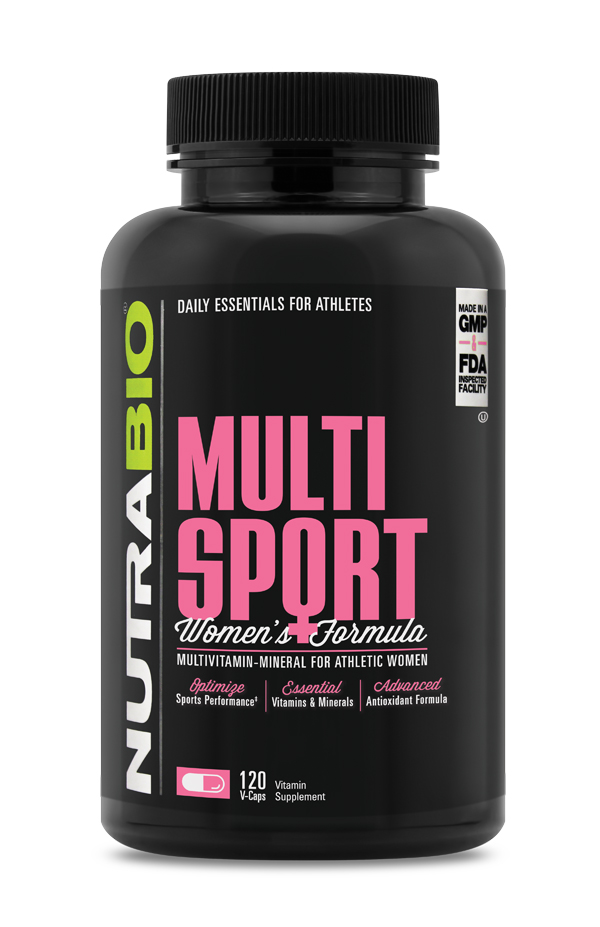


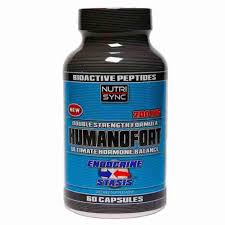
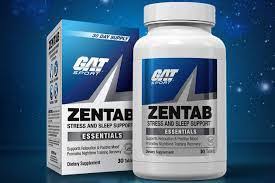
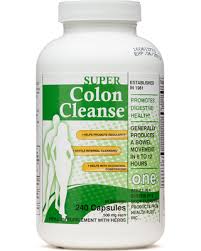
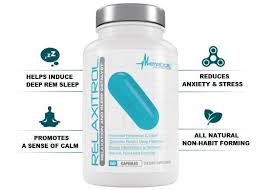
Reviews
There are no reviews yet.